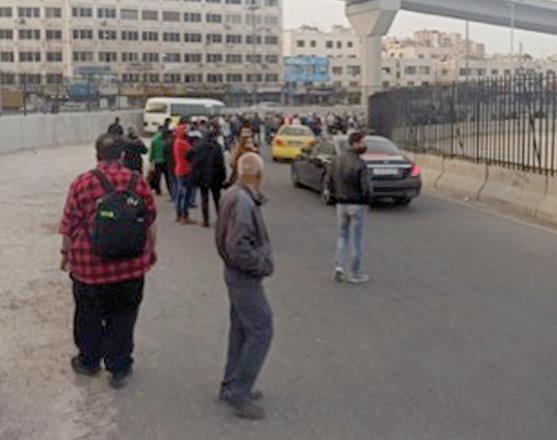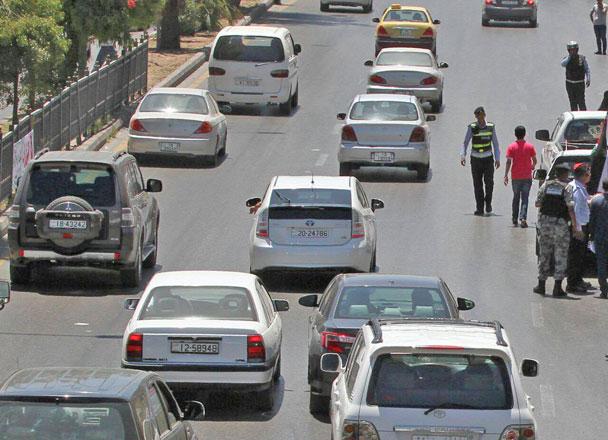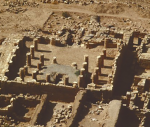You are here
Commuters lament gridlock prior to daily curfew
By Maria Weldali - Mar 16,2021 - Last updated at Mar 16,2021
AMMAN — Jordan’s streets have witnessed heavy traffic congestion since the extension of curfew and limits imposed on public transport to curb the spike in COVID infections.
During a joint press briefing on Wednesday, Minister of State for Media Affairs and Government Spokesperson Sakher Dudin said that the seating capacity in means of transport will be reduced to 50 per cent instead of 75 per cent until March 31.
Currently, the curfew is in effect from 6pm to 6am for businesses, while public movement is restricted from 7pm until 6am.
Shortly before 7pm on Saturday, which was the first day of the new curfew timing, the airport road witnessed heavy traffic congestion and road rage, according to Suad Fadda, a Jordanian citizen who noted that it took her more than an hour-and-a half for a journey, which usually takes half an hour.
“The government’s new decision regarding the extension of curfew has caused gridlock. People now spend more time in their cars trying to reach another location, instead of running their errands,” Fadda added.
She noted that now she leaves her home an hour ahead, in order to be on time.
Recently, the Jordan Strategy Forum, citing data issued by the Ministry of Transport, wrote on Twitter that the total number of vehicles in Jordan reached 1.5 million, of which 1.2 million are in Amman.
Samah Darwish, a Jordanian citizen in her early 20s, told The Jordan Times that traffic jams have become a regular feature in the country.
Darwish, a near daily public transport commuter between Zarqa and Amman, added that overcrowding has become a routine affair at bus stops, which means there is no physical distancing.
“Now bus stops are overcrowded and buses are empty, which is a bigger problem,” Darwish noted.
On Saturday, Transport Minister Wajih Azaizeh said that seating capacity in public transport will return to prior levels on March 31, if the epidemiological situation allows.
Related Articles
AMMAN — For many workers, both in public and private sectors, who do not own a vehicle and depend on public transport, commuting back home b
AMMAN – City planners are optimistic that in 2018 motorists in Amman will spend less time sitting in traffic as a major public transport pro
AMMAN — The daily average use of mobile Internet during summertime has significantly increased this year, especially with the arrivals of Jo


















